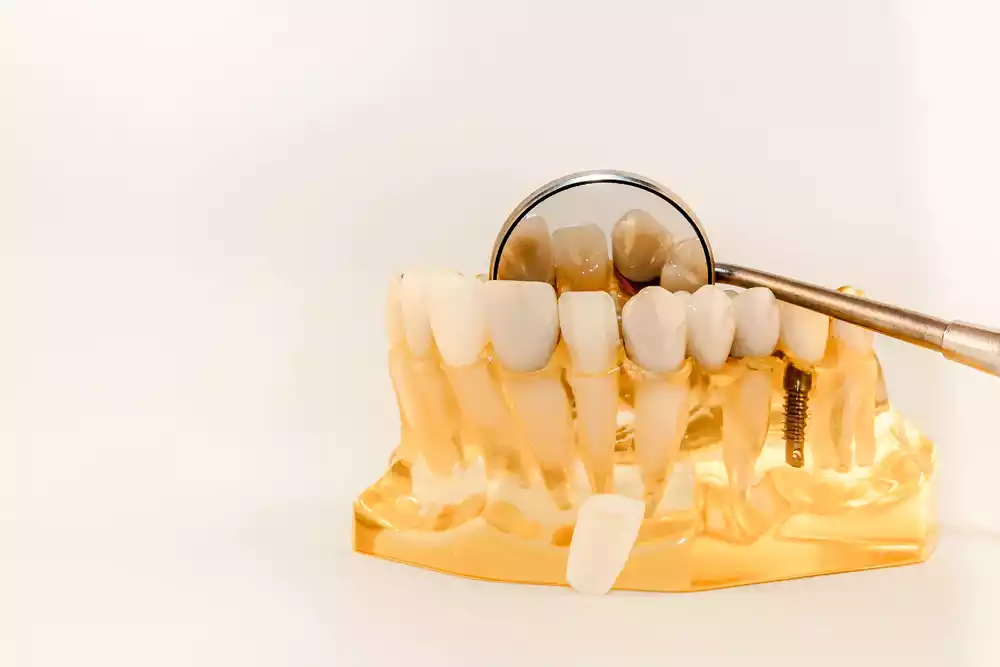Are you experiencing tooth sensitivity or persistent toothaches? It might be time to pay attention to the signs of dental cavities. As dental experts, we understand the importance of early detection and prevention when it comes to maintaining a healthy smile. In this article, we will explore the common signs of dental cavities, helping you identify potential issues and take proactive steps toward better oral health.ç
Understanding Dental Cavities
Dental cavities are a common oral health issue that can affect anyone, regardless of age or dental hygiene practices. It’s important to understand the signs of dental cavities, as early detection and prevention are key to maintaining a healthy smile. Let’s delve into some key points about dental cavities:
What are dental cavities?
Dental cavities, also known as tooth decay, are areas of damage on the surface of teeth that develop into small holes, or cavities. They occur when harmful bacteria in the mouth produce acids that attack and weaken the protective outer layer of the teeth, known as the enamel. Without proper treatment, cavities can continue to grow and cause more significant damage.
What causes dental cavities?
Cavities are primarily caused by a combination of factors, including poor oral hygiene, frequent consumption of sugary and acidic foods or beverages, and the presence of bacteria in the mouth. When we don’t thoroughly clean our teeth and gums, plaque – a sticky film of bacteria – can build up on the tooth surfaces. Plaque produces acids that attack the enamel and lead to cavities.
Common Signs of Dental Cavities
Being able to recognize the signs of dental cavities can help us address the issue promptly. Some common signs of dental cavities include:
- Tooth pain or sensitivity, especially when consuming hot or cold foods and beverages.
- Toothache, which may be mild or severe, and could be persistent or intermittent.
- Visible discoloration or staining on the surface of the teeth.
- Small visible pits or holes in the teeth.
- Bad breath or an unpleasant taste in the mouth.
Why early detection is crucial
Early detection of dental cavities is crucial for preventing further damage to the teeth. When we identify cavities in their early stages, it’s easier to treat them with non-invasive procedures such as dental fillings. If left untreated, cavities can progress and lead to more serious complications, such as tooth infection, abscesses, and even tooth loss.
- Brush our teeth at least twice a day using fluoride toothpaste.
- Floss daily to remove plaque and food particles from between the teeth.
- Limit our consumption of sugary and acidic foods

Signs of Dental Cavities: Tooth Discoloration
Tooth discoloration is one of the most common signs of dental cavities. When it comes to identifying dental issues, discoloration is an important indicator that should not be ignored. Discoloration can vary in color and severity, depending on the extent of the cavity and the progression of decay.
Here are a few things you need to know about tooth discoloration as one of the signs of dental cavities:
Yellow or Brown Stains: Dental cavities can cause yellow or brown stains on the affected tooth. These stains may appear as dark spots or patches on the tooth surface. These discolorations are usually a result of the bacteria and plaque buildup that occur in the cavity. If you notice any unusual discoloration, it’s crucial to consult your dentist for an examination.
White Spots: Contrary to popular belief, not all tooth discolorations caused by dental cavities are dark in color. In the early stages, dental cavities may manifest as white spots on the tooth surface. These white spots indicate areas of enamel demineralization, which is the first sign of tooth decay. Paying attention to these early white spots and taking prompt action can prevent the progression of the cavity.
Discoloration Around Existing Dental Fillings: If you have dental fillings, keep an eye out for discoloration around them. Cavities can develop around or underneath existing fillings, which may cause the filling to appear darker or discolored compared to the surrounding tooth structure. This could be an indication of new decay or a sign that the existing filling needs to be replaced.
Unexplained Changes in Tooth Color: In some cases, dental cavities can cause overall changes in the color of the affected tooth. If you notice any unexplained discoloration or a shift in tooth color, it’s essential to seek professional dental care. Early detection and treatment can help prevent further damage and save your tooth from extensive restoration procedures.
By being aware of the different signs of dental cavities, such as tooth discoloration, you can take proactive steps to maintain your oral health.

Increased Tooth Sensitivity: What It Could Mean
If you’ve noticed that your teeth have become more sensitive lately, it could be an indication of a dental cavity. Tooth sensitivity is one of the common signs of dental cavities that you should pay attention to when it comes to maintaining good oral health.
When we talk about tooth sensitivity, we are referring to that sharp or shooting pain that you may experience when you consume something hot, cold, sweet, or acidic. It can be quite uncomfortable and can significantly affect your day-to-day life.
So, what could increased tooth sensitivity mean? Let’s take a look:
Enamel erosion
The outer layer of your teeth called the enamel, serves as a protective shield. However, poor oral hygiene habits, acidic foods and beverages, and certain medications can erode the enamel, leaving the underlying dentin exposed. This can lead to tooth sensitivity.
Worn tooth enamel
Over time, the enamel on your teeth can wear down due to grinding or clenching, aggressive brushing, or consuming a highly abrasive diet. When the enamel wears away, the sensitive dentin becomes exposed, causing tooth sensitivity.
Gum recession
Gum recession occurs when the gum tissue pulls back from the tooth, exposing the sensitive root surface. This can result from gum disease, brushing too hard, or using a toothbrush with hard bristles. Gum recession can lead to increased tooth sensitivity.
Tooth decay
Dental cavities are areas of damage on the surface of the teeth. If left untreated, they can progress and create small holes in the teeth. As the cavity gets closer to the nerves of the tooth, it can cause tooth sensitivity.
It’s important to remember that increased tooth sensitivity doesn’t automatically mean you have a dental cavity. Various factors can contribute to sensitivity. However, it’s always best to consult a dentist in Tijuana, if you experience persistent or severe tooth sensitivity.

Persistent Toothaches: Another of the Signs of Dental Cavities
One common sign of dental cavities is persistent toothaches. When you experience a lingering toothache that doesn’t go away, it could be a clear indicator of a cavity. Toothaches are often caused by tooth decay, which is the result of bacteria in the mouth breaking down sugars and producing acids that erode the tooth’s enamel.
If you have a cavity, you may feel a sharp and continuous pain in the affected tooth. The pain may worsen when you eat or drink something hot, cold, or sugary. This discomfort occurs because the decay has reached the inner layers of the tooth, where the nerves and blood vessels are located. Additionally, a toothache may be exacerbated by the presence of an infection in the tooth, which can develop if the cavity is left untreated.
It’s important to note that not all toothaches are indicative of cavities. They can also be caused by other dental issues, such as gum disease or a cracked tooth. However, if you have been experiencing constant tooth pain, it’s essential to schedule a dental appointment to get a proper diagnosis.
Early detection of the signs of dental cavities through regular dental check-ups can prevent further damage to your teeth, such as the need for root canal treatment or tooth extraction.
Remember: By addressing the issue early on, you can avoid more extensive and costly dental procedures later.





